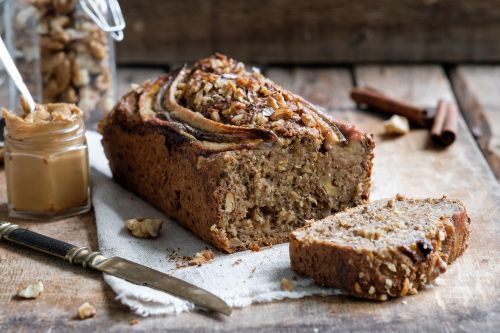ORGANIC Almond oil
virgin


EU agriculture
- gently cold-pressed from sweet, unroasted organic almonds
- mild taste
- high content of monounsaturated fatty acids
- ideal for the preparation of light meals
- also suitable for preparing meals for small children
from 1515 ratings



 Almond blossom in spring  Ripe almonds before harvesting |
Ölmühle Solling's cold-pressed almond oil is a high-quality edible oil that is gently produced from unroasted almonds from controlled organic cultivation. Pure almond oil has a pale yellow color and a mild almond taste and scent. The oil is rich in valuable ingredients such as the unsaturated fatty acid oleic acid. This is around 68 g per 100 g and is therefore similar to olive oil. Replacing saturated fatty acids with unsaturated fatty acids in the diet helps to maintain a normal blood cholesterol level. Oleic acid is a monounsaturated fatty acid. In its composition, almond oil is also similar to apricot kernel and plum kernel oil.
Origin
The almond tree is botanically called Prunus dulcis Rosaceae. At Ölmühle Solling, organic almond oil is obtained from the ripe fruit of the almond tree by cold pressing. Almond trees prefer the climate in warm, temperate zones such as Spain or Sicily, where the almonds for our almond oils come from. The almond is an elongated, egg-shaped drupe with a rough, gray, leathery skin. A distinction is made between sweet and bitter almonds. However, only the sweet almonds are pressed to produce an edible oil. Almonds contain around 60% almond oil.
Use of almond oil
Pure almond oil, which is cold-pressed, is extremely suitable for the preparation of mild and light foods. It is also well tolerated by babies and small children. Almond oil can also be used for light heating. However, as it can lose some of its valuable ingredients when heated, it is advisable to use the oil primarily for refining salads and raw vegetables, for baking and for steaming. Cold-pressed almond oil has a mild flavor, making it an ideal base for dressings and marinades. Almond oil is also ideal for breakfast in muesli or with desserts due to its sweet and typical almond flavor.
Effect of almond oil on the skin
In addition to its use in the kitchen, almond oil is also an ideal skin care oil for all skin types. It is a moisturizing skin care oil for the face and body with a skin-protecting effect. It is deeply absorbed by the skin and is well tolerated. Almond oil is suitable for daily care as well as a gentle massage or bath oil and is a common ingredient in skin care oil blends, body lotions and massage oils. Almond oil is ideal for baby care.
Storage and shelf life
When stored away from light and at temperatures of 10-20 °C, almond oil can be kept unopened for up to 12 months. An opened bottle of almond oil should also be kept well sealed and stored in a cool place.

Recipe

Banana bread with nuts
Recipe for delicious banana bread with walnuts and chashew nuts. Prepared with almond or coconut oil. Ideal as a snack or as dessert combined with ice cream and fresh fruit. zum Rezept
Strawberry almond vinaigrette
Quick and easy recipe for a salad vinaigrette with strawberries and almonds. Prepared with coconut flower sugar and our freshly milled almond oil. zum Rezept
Blueberry muffins
Easy recipe for muffins with blueberries. Prepared with spelt and almond flour. Recipe for 8 to 10 muffins. Refined with freshly milled almond oil by Ölmühle Solling. zum RezeptRatings
Specification and ingredients
Almond oil
Average energy and nutrient content for 100 g
Please enjoy our products as part of a diverse and balanced nutrition.
As a product of nature the composition of the oil can vary, the given specifications are therefore average values.
Ingredients
Almond oil, certified organic.Durability
9 - 12 monthsLagerung
Store in a cool and dark place.Fatty acids diagram

Botanical name: Prunus dulcis, Syn.: Prunus amygdalus
Certification:
The almonds used for our cold-pressed almond oil come from certified organic cultivation in accordance with EU Organic Regulation 2092/91.
Organic almond oil is characterized by its high content of the monounsaturated fatty acid "oleic acid", which also makes it suitable for preparing hot dishes and for frying.
New long-term studies (e.g. EPIC study2008) suggest a reduction in carbohydrate intake to 30-40% and an increase in the proportion of fat in the diet to 30-40% of daily calories. After much hesitation, the German Nutrition Society (DGE) has now also endorsed this dietary recommendation. More saturated fats and high-quality vegetable oils not only bring more taste and enjoyment to food, but also more satisfaction and therefore a better chance of implementing any necessary dietary changes in the long term. In the current fat guideline for a healthy diet, the DGE confirms for the first time that there is no evidence that eating more fat and oil increases the cardiovascular risk.
Conclusion: More fat and oil can be consumed, but the composition of the oils is of particular importance. Monounsaturated fatty acids and a favorable ratio of omega-6 to omega-3 fatty acids should be taken into account.
Literature references
Krist, Sabine, Buchbauer, Gerhard, Klausberger, Carina: Lexikon der pflanzlichen Fette und Öle. 1st edition. Vienna: Springer-Verlag: 2008.
www.kochbar.de





 Vanilla almond spice oil
Vanilla almond spice oil Coffee almond spice oil
Coffee almond spice oil Almond flour
Almond flour